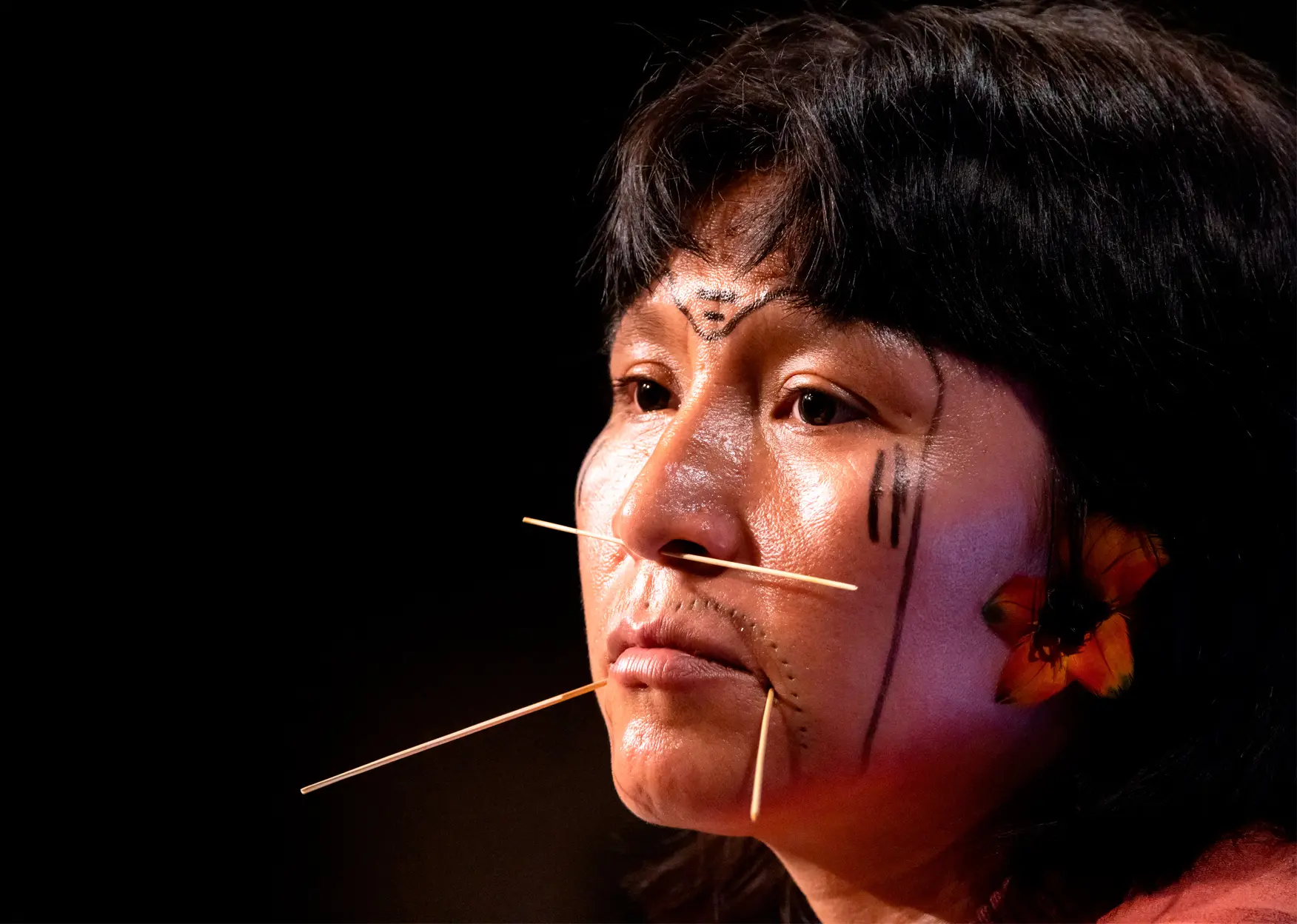The summit of Brics countries, which ended on July 7, in Rio de Janeiro, spelled setbacks to a commitment to gradually eliminate oil, gas and coal that countries had signed at the COP28 climate conference held two years ago.
The final declaration from the leaders of the group’s 11 nations – which Brazil is leading this year – fails to mention this commitment and states they “acknowledge fossil fuels will still play an important role in the world’s energy mix, particularly for emerging markets and developing economies.” This excerpt was taken from a paragraph discussing energy security, which also mentions “maintaining undisrupted flows of energy from diverse sources.”
It is similar to a passage proposed unsuccessfully by Bolivia in the negotiations on a “just transition” (a concept that applies to the process of shifting to a sustainable economy “without leaving anyone behind”) that took place at the mid-year Climate Convention meeting. At the meeting held in Bonn, Germany, in June to prepare for COP-30, the South American gas producer and exporter served as a spokesperson for the self-entitled Like-Minded Developing Countries, or LMDCs.
Several LMDC members, such as India, China and Saudi Arabia, are also new Brics members after the group expanded over the last two years, incorporating more oil and gas exporting nations – like Saudi Arabia, as well as the United Arab Emirates and Iran. Other Brics members, such as China and Indonesia, are still mostly dependent on coal, oil and gas to generate energy, despite seeing a rise in wind, solar and biomass sources.
On July 7, one day after the leaders’ statement was released, President Lula gave his opening remarks at a summit session to discuss climate change. Diverging from the joint statement, he mentioned the two main recommendations in the Global Stocktake, the COP28 document listing the measures needed to fulfill the Paris Agreement against climate change. “There is no postponing the just and planned transition to end the use of fossil fuels and eliminate deforestation,” he said.
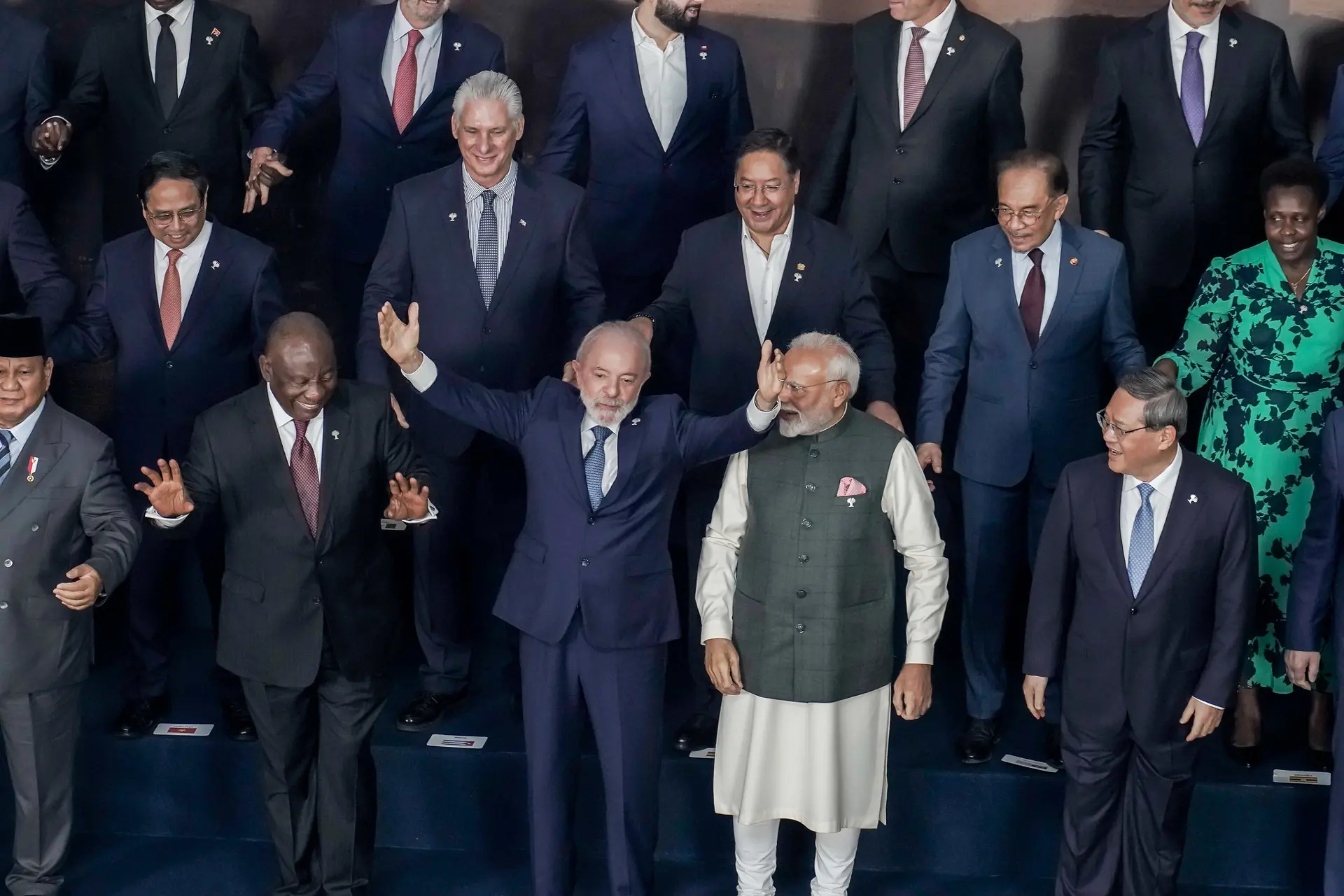
LULA GOT SUPPORT FROM THE BRICS FOR A FUND TO PRESERVE FORESTS, BUT WAS GIVEN NO CLUE AS TO WHICH COUNTRIES WILL CONTRIBUTE. PHOTO: RAFA NEDDERMEYER/BRICS BRASIL/PR
Although much less dependent on fossil fuels to generate energy, Brazil is also planning to increase oil production, especially for export. In June, 19 blocks for oil exploration were auctioned off in the Foz do Amazonas Basin, an extremely environmentally sensitive region. Petrobras is about to receive the first license to drill in the area, where oil companies already hold nine blocks awarded in a 2013 auction.
In his speech on the climate, Lula also said “the Global South should lead a new paradigm of development,” without “repeating the mistakes of the past,” and that countries like Brazil can’t just be “suppliers of raw materials.” It is not, however, clear whether Brics members are in agreement on this new paradigm.
At a June 3 seminar on the Brics, Maria Elena Rodriguez, a professor at the Pontifical Catholic University of Rio de Janeiro, noted that China dominates the production chain for the energy transition, including minerals used in batteries for cars, solar panels, and wind turbines. Brazil, Rodriguez said, exports lithium to the Asian country for processing. “We can’t reproduce the previous schemes between North and South,” she said.
Brazil’s environment and climate minister, Marina Silva, was at the summit in Rio and wanted to emphasize Lula’s speech instead of the joint statement. “The president, in his speeches, including in the speech on climate, gave every sign that the COP30 will be a new reference for the next ten years on the agenda of implementation [of the Paris Agreement]. The important thing is for you to see that the country that is leading [the Brics and COP30] is leveraging the agenda forward,” she told SUMAÚMA.
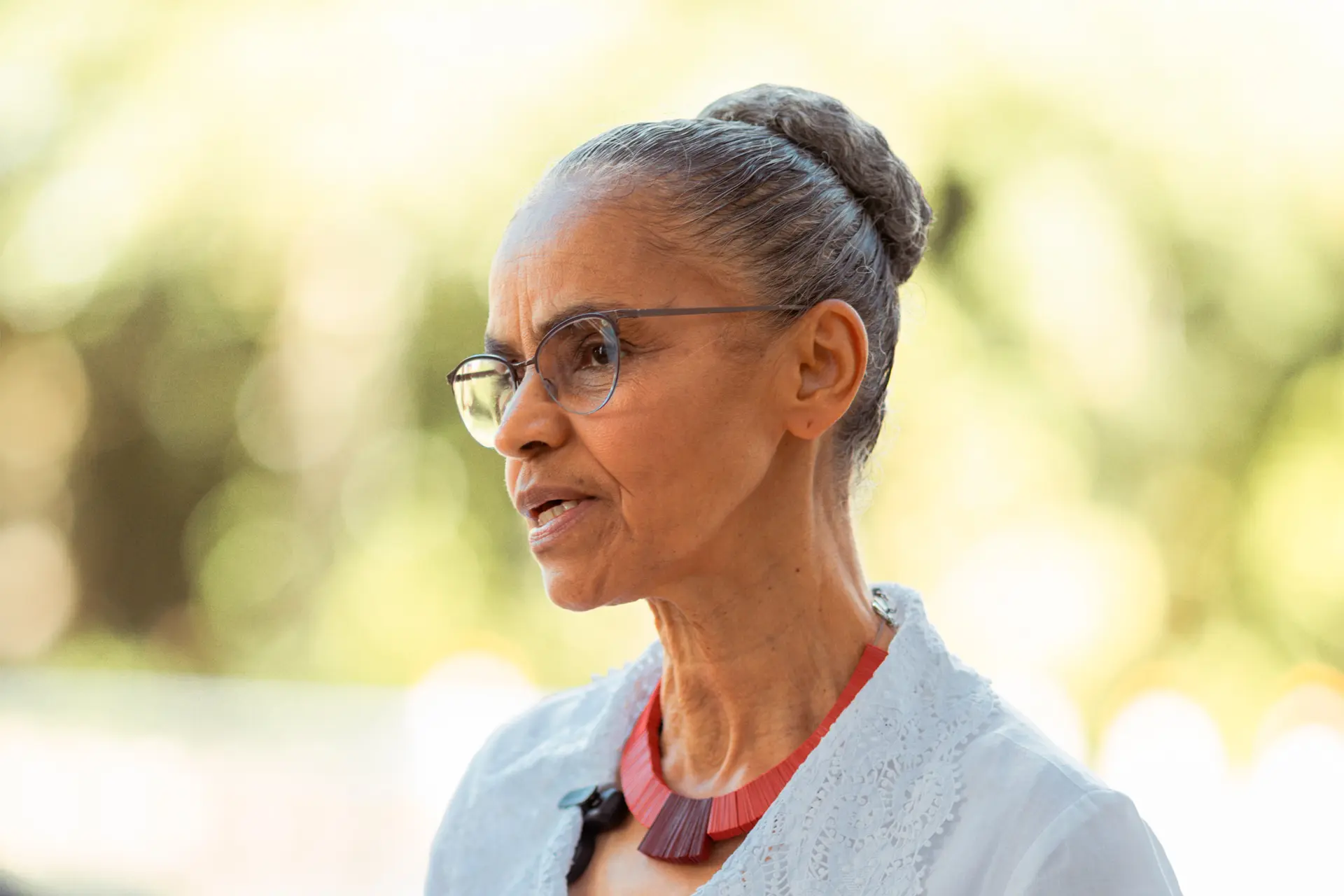
MARINA LAUDED THE PRESIDENT’S SPEECH, WHICH MENTIONED GRADUALLY ELIMINATING FOSSIL FUELS, AND SAID HE IS POINTING THE WAY. PHOTO: ISABELA CASTILHO/BRICS BRASIL
Other members of the government argue the text reflected the consensus that was possible in a heterogeneous group, and the important thing was to include the climate agenda in the Brics meeting, just like at the G20, the meeting of the 20 biggest economies, held last year. They said Brazil had tried to establish climate partnerships with Brics countries by exchanging knowledge and technology, such as reforestation initiatives. They recalled that Brazil mostly owes its capacity to monitor deforestation to its agreement with China to launch satellites.
The step back on fossil fuels was the lowlight of a summit that, in the view of the Greenpeace Brazil organization, put “more emphasis on the environment and climate agenda” than previous meetings. In their final statement, the Brics expressed their “full commitment to a successful COP30” and lauded the proposed Tropical Forest Forever Facility, a new way to raise funding for preservation, which Brazil plans to launch in Belém. The text does not make clear whether countries like China and the UAE will contribute to the fund, but the Brics “encouraged potential donor countries to announce ambitious contributions, in order to ensure the Facility’s capitalization and timely operationalization.”
In the statement, the Brics asked rich countries, the biggest polluters historically, for more financing for climate action, but they also promised to leverage their “economic strength and innovation capacity to demonstrate that ambitious climate action can advance prosperity and a better future for everyone.” COP30 president André Corrêa do Lago said it is “necessary and morally correct” to hold the rich responsible, as the finance obligation is established in climate treaties. “On the other hand, some of the best solutions for the climate are being developed in Brics countries, from biofuels in Brazil to Chinese solar panels,” he explained.
The Brics also launched a Leaders’ Framework Declaration on Climate Finance. According to the document, the group is committed to implementing the Paris Agreement and supports reforms for multilateral banks and climate funds linked to the Climate Convention, in an effort to provide more money to countries with fewer resources. A promise was also made for the Brics’ New Development Bank to allocate 40% of its loans to projects connected to the climate by 2026.
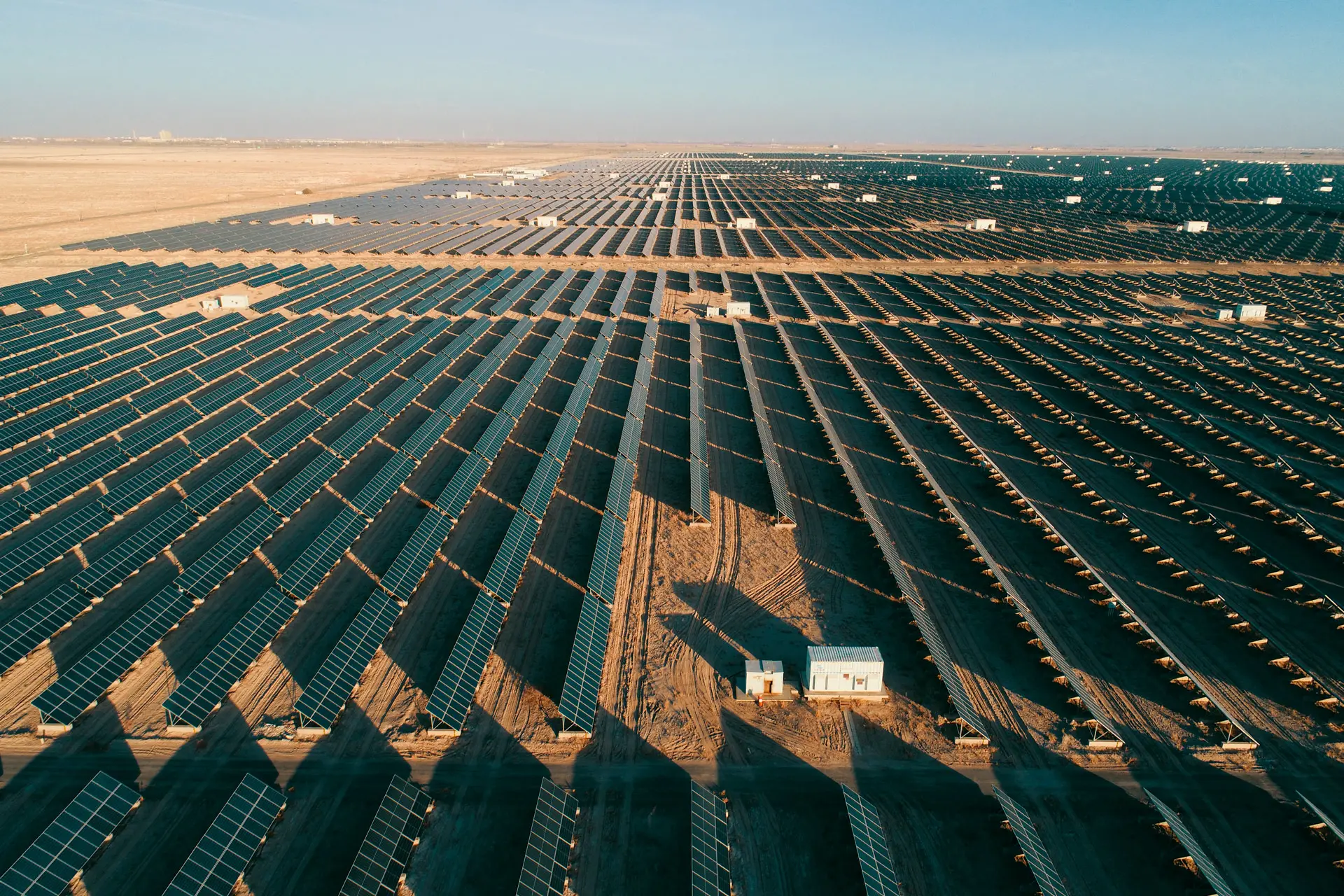
SOLAR ENERGY PRODUCTION IN CHINA, WHICH DOMINATES THE RENEWABLE ENERGY CHAIN AND IMPORTS RAW LITHIUM FROM BRAZIL. PHOTO: CFOTO/NURPHOTO VIA AFP
COP30 in Belém will be ‘wonderful’
At the press conference ending the summit, most of Lula’s questions were about statements from Donald Trump. The US president took to social media to threaten trade tariffs on products from Brics countries and called the proceedings against far-right former president Jair Bolsonaro, who is being accused of an attempted coup, a “witch hunt.”
Lula responded that the world doesn’t want another “emperor.” He said nobody spoke about Trump at the summit: “We didn’t pay this any mind.” He called the meeting in Rio an “extraordinary event” to defend “cooperation and multilateralism” in a world at war. He said it is in everyone’s interest to work to fight the planet’s heating. The issue is “very serious” and not some “environmentalist, university student or hippy thing,” but something for people who “believe in science,” he added.
In light of concerns about hotel room prices in Belém during COP30, he asked André Corrêa do Lago, the conference’s president, to confirm the meeting will be held in Pará. “Am I talking about hotels too?” Lago asked. “The COP will be in Belém. Belém is doing an amazing job preparing for the COP, it’s going to be wonderful to hold the COP in the Amazon. Everyone is very excited. There are a few situations, but they’re being circumvented,” he said.
At least three groups of Climate Convention countries – the Africans, the “less developed” countries, and island nations – have already sent letters to the Brazilian government expressing their concern about the rates for lodging in Belém, making it harder for their delegates to attend the UN event. The failure of member countries to participate in the conference could turn into a serious problem for the legitimacy of the agreements signed, since the COP’s decisions need to be made in consensus. Promises have been made since early in the year for a platform with more room options at lower prices, but it has yet to launch.
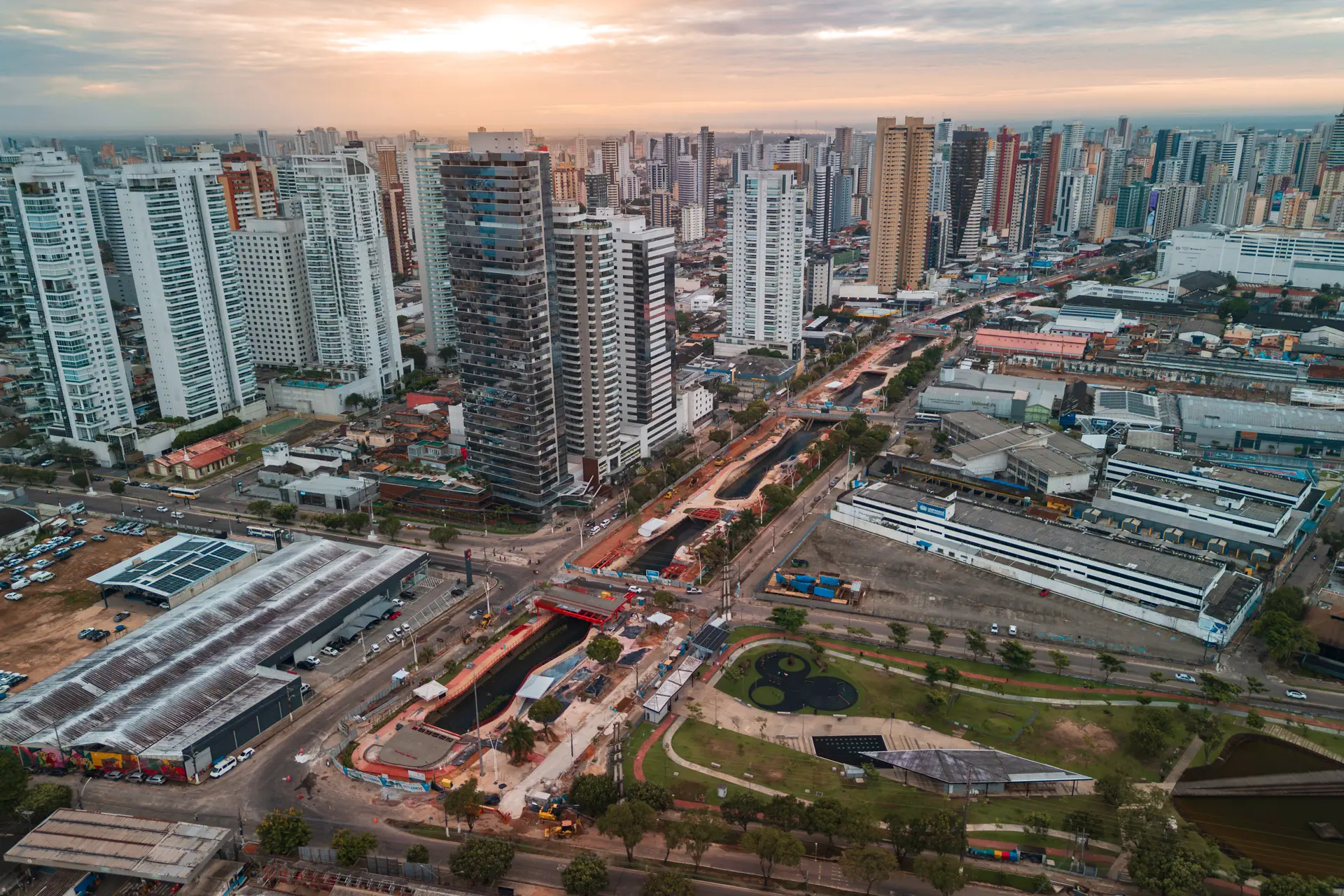
DESPITE COMPLAINTS ABOUT ROOM PRICES, THE GOVERNMENT REITERATED THAT COP30 WILL TAKE PLACE IN BELÉM, WHERE THE CONFERENCE IS BEING BUILT. PHOTO: MÁRCIO NAGANO/SUMAÚMA
Report and text: Claudia Antunes
Editing: Fernanda da Escóssia
Art Editor: Cacao Sousa
Photo Editor: Lela Beltrão
Fact-checker: Plínio Lopes
Proofreader (Portuguese): Valquíria Della Pozza
Castilian translation: Julieta Sueldo Boedo
English translation: Sarah J. Johnson
Copyediting and finishing: Natália Chagas
Editorial workflow: Viviane Zandonadi
Editor-in-chief: Talita Bedinelli
Editorial director: Eliane Brum

